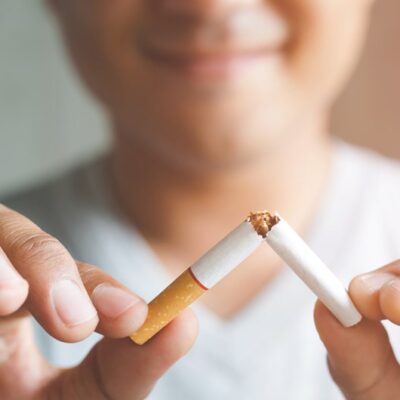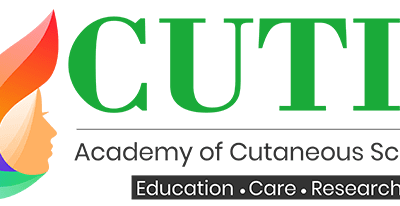A bright, healthy smile is something everyone wants, but achieving it takes more than just brushing once in the morning and calling it a day. While most people understand the importance of daily brushing and flossing, many don’t realize that professional dental cleanings play an equally important role in oral health. At-home care and professional dental cleanings work hand in hand, yet they serve very different purposes. Understanding how they differ helps you appreciate why both are essential for keeping your teeth and gums in their best condition.
At-Home Care: The Everyday Foundation
At-home dental care is the daily routine you control. Brushing, flossing, and rinsing are the foundation of a healthy mouth. Dentists recommend brushing at least twice a day with fluoride toothpaste to help remove food particles, plaque, and bacteria that naturally collect on your teeth. Plaque is a sticky film that forms after meals, and if not cleaned regularly, it can harden into tartar. Brushing helps keep this film under control and strengthens your enamel against cavities.
Flossing is equally important because it reaches areas your toothbrush simply can’t. The tight spaces between teeth and just under the gumline are common places where bacteria hide, causing gum irritation and bad breath. When you floss daily, you’re actively preventing plaque buildup that could later lead to gum disease.
Mouthwash is another tool that enhances at-home care. Antibacterial rinses can reduce bacteria in your mouth and help freshen breath, while fluoride rinses offer extra protection against decay. Combined, these habits make up the everyday defense system that keeps your smile strong.
However, even the most consistent routine has limitations. Your toothbrush and floss are effective, but they cannot completely remove every bit of buildup. Over time, even the best home care routine leaves behind deposits that need professional attention.
Professional Dental Cleaning: Beyond the Toothbrush
Professional dental cleanings provide the deep, thorough care that at-home tools can’t achieve. During a cleaning, a dental hygienist uses specialized instruments to remove tartar, the hardened form of plaque. Once plaque turns into tartar, no amount of brushing or flossing can get rid of it—you need a professional cleaning.
This step is crucial because tartar buildup can irritate your gums, leading to gingivitis, the earliest stage of gum disease. If ignored, it can progress into periodontitis, a serious condition that can cause gum recession and even tooth loss. By removing tartar during your cleaning, your dental team helps prevent these issues before they can do long-term damage.
Professional cleanings also include polishing your teeth. This removes surface stains from foods and drinks like coffee, tea, and wine, leaving your smile looking brighter and smoother. The smoother surface makes it harder for new plaque to stick, giving you added protection in the days and weeks after your appointment.
In many cases, dental cleanings also include an exam. This gives the dentist a chance to spot potential issues such as small cavities, gum problems, or signs of oral cancer early. Catching these problems early can save you from discomfort, more complex treatments, and higher costs in the future.
Why Both Matter
Think of at-home care and professional cleanings as a partnership. At-home care is your responsibility—it’s what you do every day to prevent problems from developing. Professional dental cleanings are your dentist’s role—they provide the deeper clean and professional monitoring that ensures your daily efforts are effective.
If you rely only on at-home care, you risk allowing tartar and hidden buildup to accumulate. On the other hand, if you skip brushing and flossing and only show up for professional cleanings, you’ll likely face cavities, gum disease, or even tooth loss because too much damage will occur between visits.
Together, these two forms of care create a complete system for oral health. Your daily routine keeps things in check, while professional cleanings give your smile a reset and a stronger defense against potential problems.
Long-Term Benefits of Combining Both
When you commit to both at-home care and regular professional cleanings, the benefits go far beyond having fresh breath and white teeth. Some of the key long-term advantages include:
-
Stronger gums: Regular care reduces the risk of gum disease, keeping your gums healthy and strong enough to support your teeth for years.
-
Cavity prevention: Brushing and professional cleanings together significantly lower the chances of decay.
-
Brighter smile: Professional polishing keeps stains under control, while daily brushing prevents discoloration from worsening.
-
Early detection of problems: Professional exams allow issues to be addressed before they turn into major dental concerns.
-
Better overall health: Poor oral health has been linked to conditions like heart disease and diabetes. Keeping your mouth healthy benefits your whole body.
The Bottom Line
Professional dental cleaning in lewisville and at-home care are not meant to replace each other—they are meant to work together. At-home care provides the daily foundation by brushing away plaque, cleaning between teeth, and maintaining fresh breath. Professional dental cleanings take your oral health a step further by removing tartar, polishing your teeth, and giving your dentist a chance to catch problems early.
By combining the two, you protect your smile today and safeguard it for the future. Think of it this way: your at-home routine is like maintaining your car with regular washing and oil checks, while professional cleanings are like taking it to the mechanic for a full service. Both are necessary if you want long-lasting, reliable performance.
Investing in both at-home care and professional dental cleanings is the best way to keep your smile healthy, confident, and bright for years to come.




